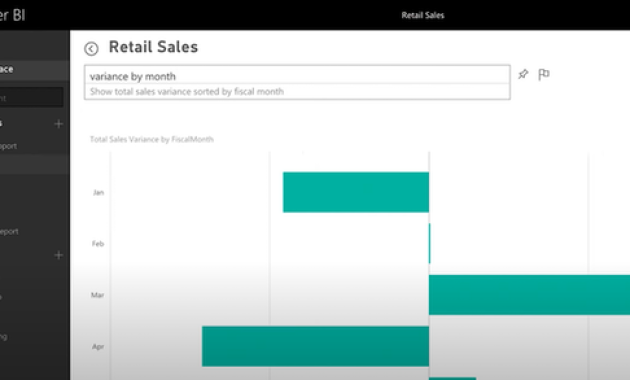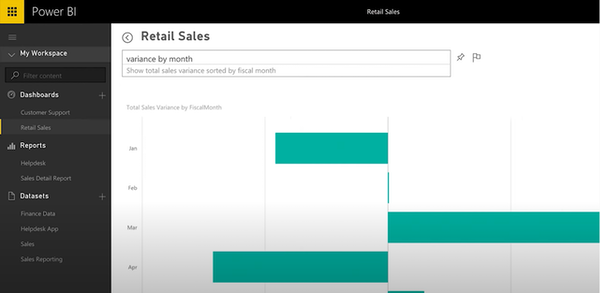
Unlocking Real Insights: The Power of Self-Service Business Intelligence Software
In today’s data-driven world, businesses are drowning in information. The challenge isn’t a lack of data; it’s the ability to extract meaningful insights from it. This is where self-service business intelligence (BI) software steps in. It empowers users to analyze data independently, without relying solely on IT or data science teams. This article delves into the capabilities of self-service business intelligence software, highlighting its benefits and how it can transform your organization. We’ll explore how this software unlocks real insights, driving better decision-making and ultimately, business success.
Democratizing Data: The Rise of Self-Service BI
Historically, business intelligence was a complex, IT-driven process. Data was siloed, reports were cumbersome to generate, and access was limited. This created bottlenecks, hindering agility and responsiveness. Self-service business intelligence software has revolutionized this paradigm. It puts the power of data analysis directly into the hands of business users, regardless of their technical expertise. This democratization of data allows for faster insights, improved collaboration, and more informed decisions across all departments.
The core principle of self-service business intelligence software is its user-friendliness. Modern platforms offer intuitive interfaces, drag-and-drop functionality, and pre-built visualizations. Users can connect to various data sources, create dashboards, and generate reports with minimal training. This empowers them to explore data, identify trends, and uncover hidden opportunities. This ultimately leads to real insights that were previously inaccessible.
Key Features and Capabilities
Self-service business intelligence software offers a rich set of features designed to empower users. Understanding these features is key to choosing the right platform for your needs:
- Data Connectivity: The ability to connect to a wide range of data sources, including databases, cloud services, spreadsheets, and more. This ensures that users can access all the data they need.
- Data Preparation: Tools for cleaning, transforming, and preparing data for analysis. These tools streamline the data preparation process, saving time and effort.
- Data Visualization: A variety of visualization options, such as charts, graphs, maps, and dashboards. These visualizations make it easier to understand complex data and identify trends.
- Reporting and Dashboards: The ability to create interactive reports and dashboards that provide a comprehensive view of key performance indicators (KPIs). These reports and dashboards allow users to monitor performance and track progress.
- Advanced Analytics: Some platforms offer advanced analytics capabilities, such as predictive modeling and machine learning. These capabilities allow users to make more informed decisions based on data.
- Collaboration: Features for sharing insights, collaborating with colleagues, and providing feedback. These features enhance teamwork and allow for better communication.
Benefits of Self-Service BI
Implementing self-service business intelligence software offers numerous benefits, driving efficiency and improving decision-making processes:
- Faster Insights: Users can access and analyze data in real-time, enabling faster identification of opportunities and challenges. This quick access to information leads to quicker decisions.
- Improved Decision-Making: Data-driven insights empower users to make more informed decisions, leading to better outcomes. These data-driven decisions are often more accurate.
- Increased Efficiency: Automating reporting and analysis tasks frees up IT and data science teams to focus on more strategic initiatives. This efficiency boost also reduces bottlenecks.
- Enhanced Collaboration: Sharing dashboards and reports fosters collaboration and alignment across departments. This enhanced collaboration leads to better teamwork.
- Reduced Costs: By empowering business users, organizations can reduce their reliance on external consultants and specialized IT staff. This leads to cost savings over time.
- Better Data Literacy: Encourages data literacy across the organization, creating a more data-aware culture. This improved data literacy leads to better understanding.
Choosing the Right Self-Service BI Software
Selecting the right self-service business intelligence software is crucial for success. Consider the following factors:
- Ease of Use: The platform should be intuitive and easy to learn, with a user-friendly interface. This ease of use ensures quick adoption.
- Data Connectivity: Ensure the software supports the data sources relevant to your business. This allows for comprehensive data access.
- Scalability: The platform should be able to handle growing data volumes and user demands. This ensures future-proofing your investment.
- Security: Robust security features are essential to protect sensitive data. This security protects your valuable assets.
- Features: Consider the features that are most important to your business needs, such as data visualization, reporting, and advanced analytics. This ensures you get the right tools.
- Support and Training: Look for a vendor that offers excellent support and training resources. This support helps with successful implementation.
- Cost: Evaluate the pricing model and ensure it aligns with your budget. This ensures the investment remains sustainable.
Real-World Examples: Unlocking Insights
Self-service business intelligence software is transforming businesses across various industries. Here are a few examples of how companies are using it to unlock real insights:
- Retail: Retailers use BI to analyze sales data, identify customer preferences, and optimize inventory management. They can also track sales performance and personalize marketing campaigns.
- Healthcare: Healthcare providers use BI to analyze patient data, improve operational efficiency, and enhance patient care. They use data to monitor patient outcomes and reduce costs.
- Finance: Financial institutions use BI to analyze financial data, detect fraud, and manage risk. They use data to make better investment decisions.
- Manufacturing: Manufacturers use BI to analyze production data, optimize processes, and improve quality control. They use data to identify and fix production bottlenecks.
- Marketing: Marketers use BI to analyze campaign performance, track website traffic, and understand customer behavior. They use data to optimize marketing spend.
These examples demonstrate the versatility of self-service business intelligence software and its ability to deliver real insights across various business functions.
The Future of Business Intelligence
The future of business intelligence is undoubtedly self-service. As businesses generate more data, the need for accessible and user-friendly analytical tools will only increase. We can expect to see further advancements in:
- Artificial Intelligence (AI) and Machine Learning (ML) Integration: AI and ML will be integrated into BI platforms to automate analysis, provide predictive insights, and personalize recommendations.
- Enhanced Data Visualization: More interactive and immersive data visualization techniques will emerge, making it easier to understand complex data.
- Mobile BI: Mobile BI will become more prevalent, allowing users to access and analyze data on the go.
- Cloud-Based BI: Cloud-based BI platforms will continue to gain popularity due to their scalability, flexibility, and cost-effectiveness.
Self-service business intelligence software is not just a trend; it is a fundamental shift in how businesses operate. Embracing this technology is essential for staying competitive in today’s data-driven landscape. By empowering users with the tools they need to analyze data and derive real insights, organizations can unlock their full potential and drive sustainable growth.
Conclusion: Embrace the Power of Data
Self-service business intelligence software is a powerful tool that can transform your organization. By empowering users to analyze data and uncover real insights, you can make better decisions, improve efficiency, and drive growth. If your business isn’t already using self-service business intelligence software, now is the time to explore its potential. Embrace the power of data, and unlock the insights that will propel your business forward.
[See also: Related Article Titles: “Best Practices for Data Visualization in Self-Service BI”, “Choosing the Right BI Platform for Your Business”, “The Role of Data Governance in Self-Service BI”]

